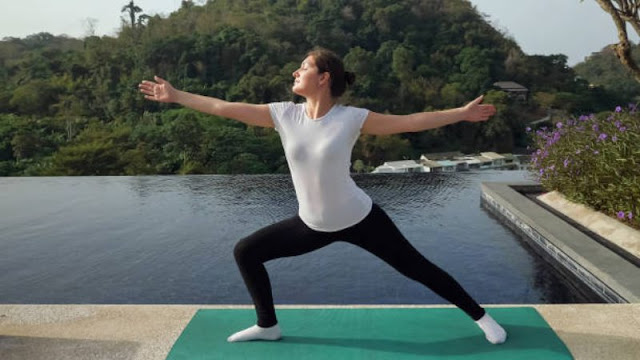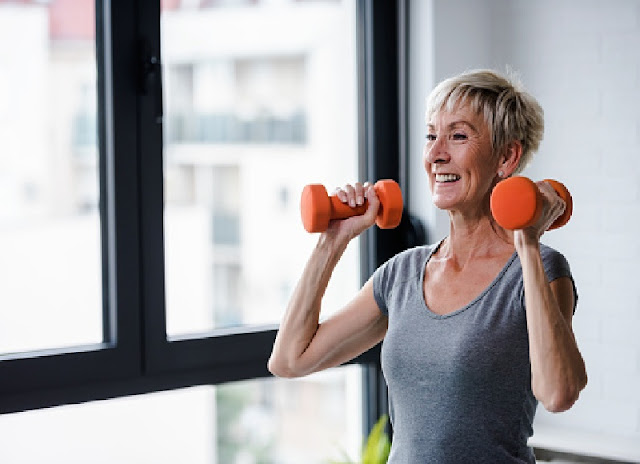Restorative Exercises like Tai Chi Promote Relaxation and Balance
Restorative Exercises like Tai Chi Promote Relaxation and Balance
In our fast-paced and often stressful lives, the importance
of relaxation and balance cannot be overstated. Chronic stress can have
detrimental effects on our physical and mental well-being, leading to various
health issues. Restorative exercises like Tai Chi offer a gentle yet highly
effective way to promote relaxation and balance in our lives. In this article,
we'll explore the principles of Tai Chi and how it contributes to relaxation,
balance, and overall well-being.
Understanding Tai Chi:
Tai Chi, also known as Tai Chi Chuan, is an ancient Chinese
martial art that has evolved into a graceful form of exercise. It combines
flowing movements, deep breathing, and mindfulness to create a harmonious
balance of mind and body. While Tai Chi originated as a martial art, it is now
widely practiced for its numerous health benefits, including relaxation and
improved balance.
Promoting Relaxation:
Mind-Body Connection: Tai Chi emphasizes the connection
between the mind and body. Practitioners focus on being present in the moment,
letting go of stressors, and cultivating a sense of inner calm. The deliberate,
slow movements in Tai Chi facilitate this mind-body connection, promoting
relaxation.
Deep Breathing: Controlled, deep breathing is a fundamental
aspect of Tai Chi. Practicing slow, rhythmic breaths during movements helps
activate the body's relaxation response. Deep breathing reduces stress
hormones, slows the heart rate, and promotes a sense of tranquility.
Stress Reduction: Regular practice of Tai Chi has been shown
to reduce stress and anxiety levels significantly. It provides a structured,
meditative environment in which individuals can release tension, leading to
improved mental and emotional well-being.
Improved Sleep: Many people struggle with sleep disturbances
due to stress and anxiety. Tai Chi's calming effects can enhance the quality of
sleep by promoting relaxation and reducing insomnia symptoms.
Enhancing Balance:
Physical Balance: Tai Chi movements involve shifting weight
from one leg to another while maintaining an upright posture. This practice
enhances physical balance, coordination, and proprioception (awareness of body
position), which are essential for fall prevention, especially among older
adults.
Strengthening Core Muscles: The slow, controlled movements
of Tai Chi engage the core muscles, including the abdominal and lower back
muscles. Strengthening these muscles contributes to better balance and
stability.
Joint Health: Tai Chi's gentle, low-impact nature is
suitable for individuals of all ages and fitness levels. It helps maintain
joint flexibility and reduces the risk of musculoskeletal injuries that can
affect balance.
Fall Prevention: Tai Chi is often recommended as a fall
prevention strategy, particularly for older adults. The practice's focus on
balance and stability can reduce the risk of falls, which is a significant
concern for this demographic.
Additional Benefits:
Enhanced Flexibility: Tai Chi's slow, flowing movements
gradually increase joint flexibility and range of motion. This can be
especially beneficial for individuals who lead sedentary lifestyles or suffer
from conditions like arthritis.
Lower Blood Pressure: Regular practice of Tai Chi has been
linked to reductions in blood pressure, which can contribute to cardiovascular
health and overall well-being.
Improved Posture: Tai Chi encourages an upright posture and
body awareness. Over time, this can lead to improved alignment and reduced
strain on the spine and muscles, reducing the risk of posture-related issues.
Mental Clarity: Tai Chi is a form of moving meditation. It
promotes mental clarity, relaxation, and a sense of inner peace. This can help
individuals better manage stress and make clear decisions in their daily lives.
Getting Started with Tai Chi:
Choose a Class: Many communities offer Tai Chi classes
taught by experienced instructors. Look for classes suitable for beginners or
those focusing on relaxation and balance.
Practice at Home: Once you've learned the basics, you can
practice Tai Chi at home. There are numerous instructional videos and resources
available online to guide your practice.
Consistency Matters: To reap the full benefits of Tai Chi,
consistency is key. Aim for regular practice, even if it's just a few minutes
each day.
Listen to Your Body: Tai Chi should be gentle and pain-free.
If you experience discomfort or pain while practicing, consult with a
healthcare professional or seek guidance from a certified Tai Chi instructor.
In conclusion, restorative exercises like Tai Chi offer a
holistic approach to promoting relaxation and balance in our lives. By
emphasizing the mind-body connection, deep breathing, and deliberate movements,
Tai Chi provides a gentle yet effective way to manage stress, enhance physical
balance, and improve overall well-being. Whether you're seeking relaxation,
better balance, or a combination of both, Tai Chi can be a valuable addition to
your wellness routine, helping you find harmony in a hectic world.




Comments
Post a Comment